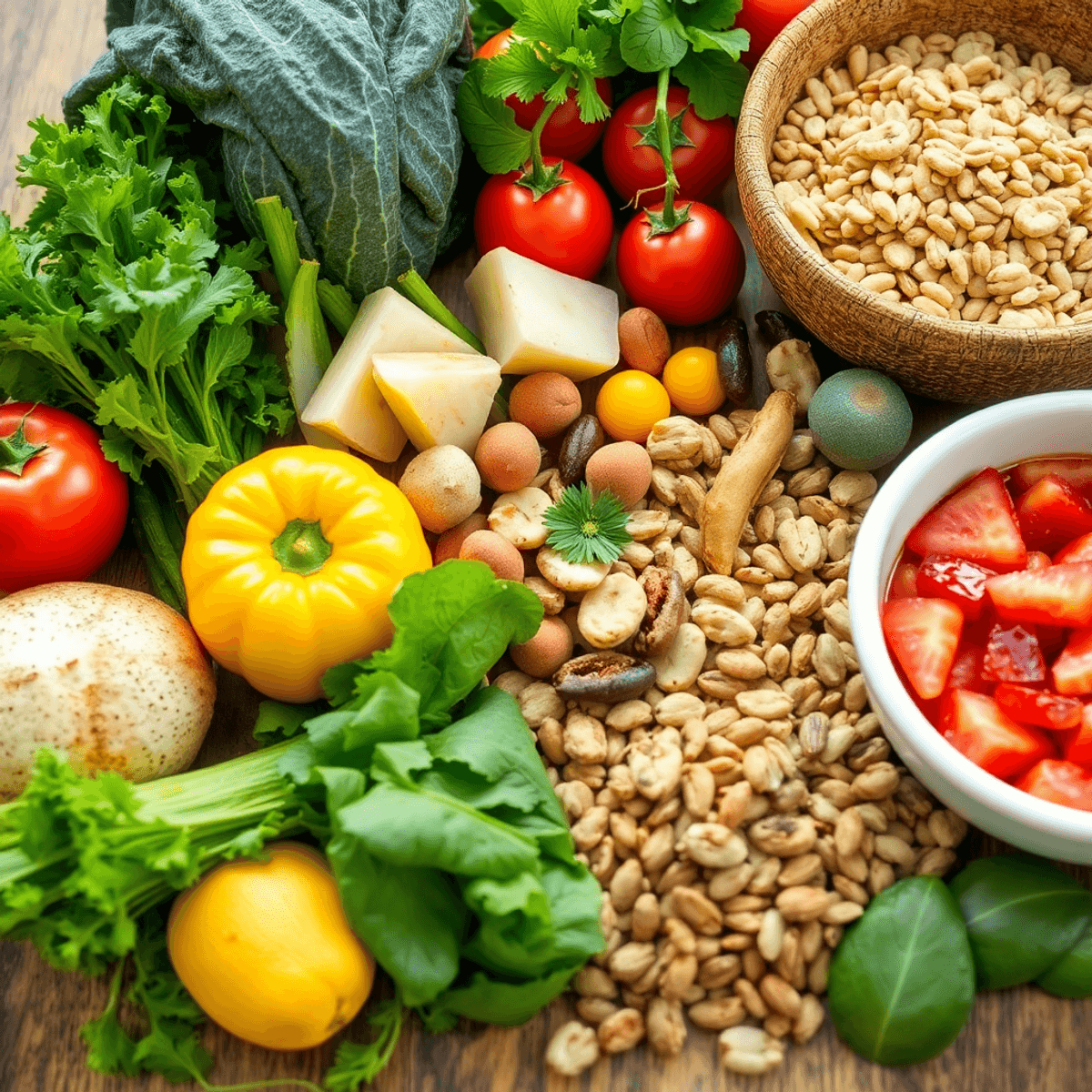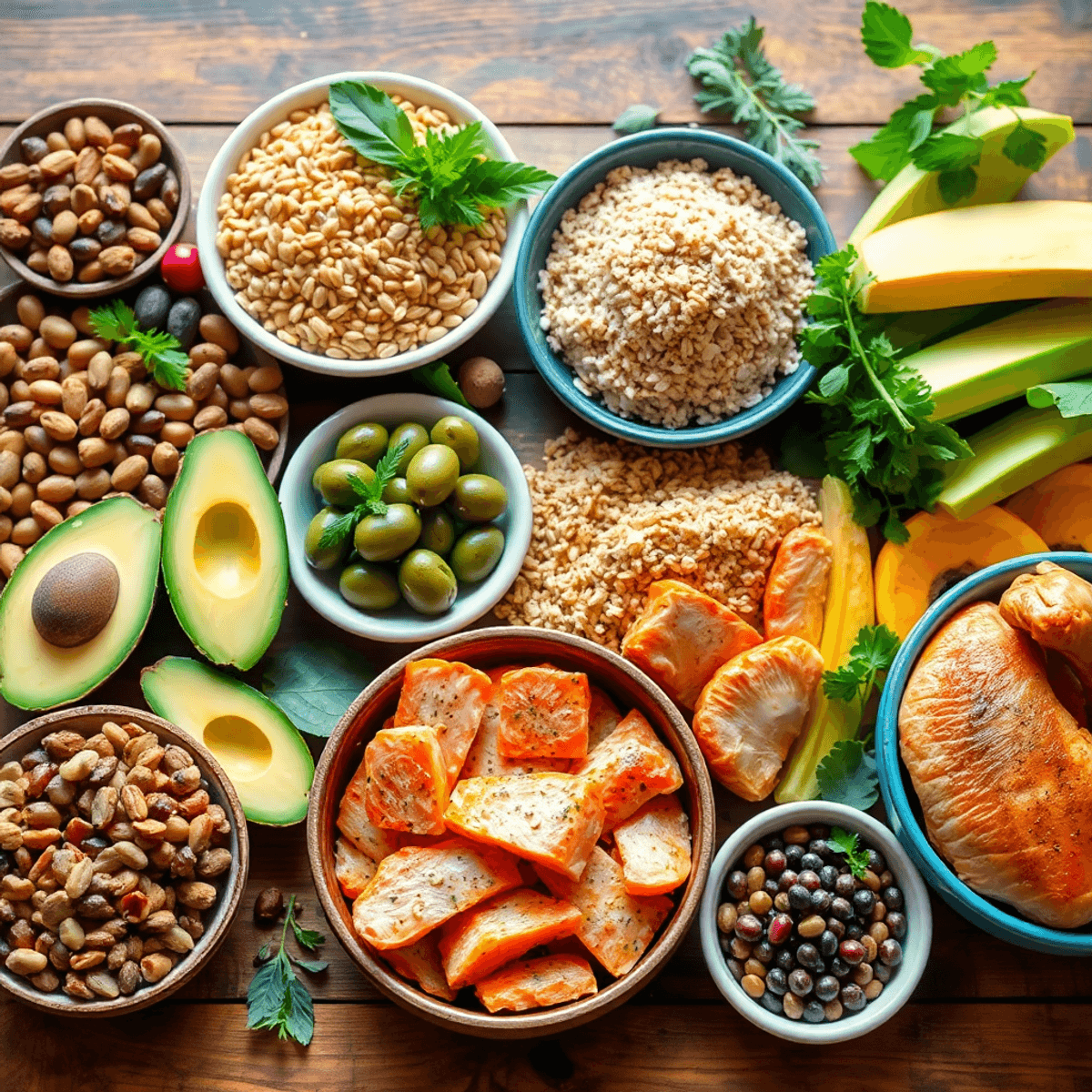How to Reverse Insulin Resistance in Just 5 Easy Steps
Imagine your body as a finely tuned machine, with insulin acting as the key that unlocks cells to let glucose in. When this system malfunctions - a condition known as insulin resistance - your cells stop responding effectively to insulin's signals. This creates a troubling cycle: blood sugar levels rise, forcing your pancreas to produce more insulin in a desperate attempt to maintain balance. Following an insulin resistance diet can help manage and improve this condition by focusing on foods that support better insulin sensitivity and overall health.

Many people believe cutting sugar alone is the magic solution to reverse insulin resistance. While reducing sugar intake plays a vital role, the reality is more complex. Your body's relationship with insulin involves multiple factors, from the foods you eat to your daily habits and lifestyle choices.
Left unchecked, insulin resistance can lead to serious health complications:
- Type 2 diabetes
- Heart disease
- Fatty liver disease
- Increased risk of certain cancers
- Potential links to Alzheimer's disease
The good news? You can take practical steps to improve your insulin sensitivity and protect your long-term health. Let's explore how a comprehensive approach - beyond just eliminating sugar - can help you regain control of your metabolic health.
While it's important to reduce sugar intake, it's equally crucial to understand that not all sugar-free products are created equal. For instance, some sugar-free products may be healthier than their regular counterparts.
In this regard, incorporating healthier alternatives like keto-friendly almond cookies, which are both diabetic-friendly and delicious, could be beneficial. These cookies are made with 100% almond flour and sweetened with low GI stevia, making them an ideal choice for those struggling with insulin resistance.
The Complex Relationship Between Sugar and Insulin Resistance
Sugar's role in insulin resistance isn't as straightforward as many believe. While excessive sugar intake can disrupt your body's insulin response, it's just one piece of a larger metabolic puzzle.
Let's break down the key dietary factors that affect insulin sensitivity:
1. Sugar and Refined Carbohydrates
- White bread, pastries, and sugary drinks spike blood glucose rapidly.
- These quick spikes force your pancreas to release more insulin.
- Regular exposure to high insulin levels can lead to decreased cellular sensitivity.
2. Hidden Dietary Culprits
- Processed Foods: Often contain hidden sugars and harmful additives.
- Trans Fats: Interfere with cell membrane function and insulin signaling.
- Artificial Sweeteners: While some may seem like a viable alternative, others, such as erythritol, have their own set of benefits and risks.
3. The Fat Factor
- Saturated fats from processed meats can promote inflammation.
- Excessive omega-6 fatty acids disrupt cellular insulin reception.
- Poor quality fats contribute to weight gain and metabolic dysfunction.
Your body's insulin response depends on multiple dietary components working together. A blood test can reveal insulin resistance, but your daily food choices play a crucial role in prevention and management.
Moreover, exploring alternative sweeteners could be beneficial. For instance, jaggery is often debated as a healthier alternative to refined sugar. Is jaggery a good alternative sweetener for diabetics? This is an important consideration for those looking to manage their sugar intake while still enjoying sweet flavors.
In addition to these dietary factors, recent studies suggest that certain lifestyle changes can also significantly improve insulin sensitivity. For example, engaging in regular physical activity has been shown to enhance the body's ability to respond to insulin effectively. Moreover, maintaining a healthy weight is crucial as obesity is a major risk factor for developing insulin resistance. Research indicates that even modest weight loss can lead to improvements in insulin sensitivity. Therefore, adopting a holistic approach that includes balanced nutrition, regular exercise, and weight management could yield significant benefits for those struggling with insulin resistance.
Benefits of a Comprehensive Approach to Reversing Insulin Resistance
Cutting sugar intake alone isn't enough to effectively reverse insulin resistance. A comprehensive strategy creates powerful synergistic effects that accelerate your progress toward better metabolic health.
Here's what happens when you combine multiple approaches:
- Enhanced Fat Burning: Reducing sugar while exercising regularly activates your body's natural fat-burning mechanisms, improving insulin sensitivity in muscle tissue. To help with sugar reduction, consider exploring sugar-free products which can assist in managing your sugar intake.
- Balanced Blood Sugar: A whole foods diet rich in fiber works with regular movement to stabilize glucose levels throughout the day.
- Reduced Inflammation: The combination of proper nutrition and stress management techniques decreases inflammatory markers that contribute to insulin resistance.
- Improved Cell Function: Quality sleep paired with a nutrient-dense insulin resistance diet helps repair and regenerate insulin-sensitive cells
Research shows that people who adopt multiple lifestyle changes experience a 50-70% greater improvement in insulin sensitivity compared to those who focus on dietary changes alone.
The key lies in creating a sustainable lifestyle that supports metabolic health through multiple channels. When you combine proper nutrition with regular physical activity, stress management, and adequate rest, each element amplifies the benefits of the others, creating lasting positive changes in your body's insulin response.
1. Embrace a Whole Foods-Based Diet for Better Insulin Sensitivity
A whole foods-based diet creates the perfect foundation for reversing insulin resistance. Here's what to include in your daily meals:
Non-starchy vegetables: Leafy greens, broccoli, and bell peppers provide essential nutrients while maintaining stable blood sugar levels and are rich in antioxidants that protect insulin-producing cells.
Fiber-rich fruits: Berries, apples, and citrus fruits slow down glucose absorption, provide natural sweetness without blood sugar spikes, and incorporating more fiber-rich foods can significantly improve diabetes control during fasting periods like Ramadan.
Whole grains and lean proteins: Quinoa, brown rice, and oats release energy gradually while fish, chicken, and legumes support muscle health and glucose metabolism.

Healthy fats: Nuts, seeds, avocados, and even olives improve insulin sensitivity and are essential for hormone production and nutrient absorption.
These foods work together to:
- Stabilize blood sugar levels
- Reduce inflammation
- Support gut health
- Enhance cellular insulin response
Pro tip: Replace processed snacks with whole food alternatives like apple slices with almond butter or carrot sticks with hummus for better blood sugar control. You could also try our sugar-free almond flour cake as a healthier dessert option.
2. Make Regular Exercise a Top Priority to Fight Insulin Resistance
Exercise is crucial in managing insulin resistance for various reasons. When you engage in physical activity, your muscles become better at using glucose both during and after the workout, leading to a natural decrease in blood sugar levels.
Aerobic Exercise:
- Brisk walking for 30 minutes
- Swimming or cycling sessions
- Dancing or aerobic classes
Improves heart health while enhancing insulin sensitivity
Strength Training:
- Resistance exercises with weights or bands
- Bodyweight exercises like push-ups and squats
Builds lean muscle mass that acts as a glucose reservoir and enhances metabolic rate for better blood sugar control
The real magic happens when you combine both aerobic and strength training exercises. A well-rounded workout routine that includes 150 minutes of moderate aerobic activity and 2-3 strength training sessions each week creates the best conditions for insulin sensitivity. This means your muscles become more responsive to insulin, requiring less of this hormone to process the same amount of glucose.
Remember to start slowly and choose activities you enjoy - being consistent is more important than pushing yourself too hard when it comes to improving insulin sensitivity through exercise.
3. Make Sustainable Lifestyle Changes Beyond Insulin Resistance Diet
Your path to reversing insulin resistance extends beyond the kitchen and gym. Research shows that stress triggers the release of cortisol, a hormone that can raise blood sugar levels and promote insulin resistance. Simple stress-reduction techniques can make a significant difference:

- Practice daily meditation or deep breathing exercises
- Try gentle yoga
- Set boundaries to protect your mental well-being
- Consider journaling or mindfulness activities
Quality sleep plays a crucial role in blood sugar regulation. Adults who consistently get less than 7 hours of sleep show decreased insulin sensitivity. Create a sleep-friendly environment by:
- Maintaining a consistent bedtime routine
- Keeping your bedroom cool and dark
- Limiting screen time before bed
- Avoiding caffeine in the late afternoon
Proper hydration supports your body's insulin response. Replace sugary drinks with water and herbal teas. A good rule of thumb: drink enough water that your urine maintains a light, straw-colored appearance throughout the day.
These lifestyle modifications work together with an insulin resistance diet and exercise to create lasting improvements in insulin sensitivity. Small, consistent changes in these areas can lead to significant health benefits over time.
4. Seek Professional Guidance if Needed on Your Journey Towards Better Insulin Sensitivity
While cutting sugar and lifestyle changes form the foundation of reversing insulin resistance, some individuals might benefit from professional medical guidance. A healthcare provider can:
- Conduct comprehensive blood tests to assess insulin and glucose levels
- Screen for underlying health conditions affecting insulin sensitivity
- Recommend appropriate supplements or medications when necessary
- Create personalized treatment plans based on individual health status
Medical interventions might include:
- Metformin: A prescription medication that helps improve insulin sensitivity
- Berberine supplements: Natural compounds that support glucose metabolism
- Chromium and magnesium: Minerals that may enhance insulin function
- Alpha-lipoic acid: An antioxidant showing promise in improving insulin sensitivity
Remember: These interventions work best when combined with proper insulin resistance diet and exercise. A qualified healthcare provider can help determine if you need additional support beyond lifestyle modifications and monitor your progress effectively.
Conclusion
Reversing insulin resistance doesn't have to be complicated. By following these 5 evidence-based steps, you can take control of your metabolic health:
- Embrace whole, nutrient-dense foods
- Make exercise a daily habit
- Create sustainable lifestyle changes
- Reduce sugar intake strategically
- Work with healthcare professionals when needed
Your journey to better insulin sensitivity is unique, and you deserve personalized support along the way. At Artinci, we specialize in creating products that help you embrace your whole health, nutrient-dense foods, while also satisfying your cravings.
We understand that reducing sugar intake can be challenging. That's why our products are rooted in science and carefully designed to ensure you get the best of taste using the best of ingredients. For those looking for guilt-free indulgence, our sugar free sweets collection offers a delicious and healthy option that perfectly fits a keto or diabetic-friendly diet.
Ready to transform your relationship with food and improve your metabolic health? Let's work together to create lasting change that goes beyond simply cutting sugar. Take the first step today - your future self will thank you.
Disclaimer: The information provided in this article is for educational purposes only and should not replace professional medical advice. Always consult with a healthcare professional before making any changes to your diet or exercise routine.
FAQs
1.Does cutting sugar reverse insulin resistance?
Cutting sugar intake can help improve insulin sensitivity, but it is not the sole factor in reversing insulin resistance. A comprehensive approach that includes diet, exercise, and lifestyle changes is essential for effectively managing insulin resistance.
2.What is insulin resistance and why is it important to address?
Insulin resistance occurs when the body's cells become less responsive to insulin, leading to elevated blood glucose levels. Addressing insulin resistance is crucial as it can impact overall health and increase the risk of developing type 2 diabetes and other metabolic disorders.
3.How does sugar intake affect insulin sensitivity?
Excessive sugar consumption can contribute to impaired insulin sensitivity by causing spikes in blood glucose and increasing fat accumulation. However, other dietary factors like refined carbohydrates and unhealthy fats also play significant roles in affecting insulin resistance.
4.What dietary changes support reversing insulin resistance?
Adopting a whole foods-based diet rich in non-starchy vegetables, fiber-rich fruits, whole grains, lean proteins, nuts, and seeds helps manage blood glucose levels and promotes better insulin sensitivity.
5.How does exercise help improve insulin resistance?
Both aerobic and strength training exercises enhance muscle glucose uptake, which supports overall metabolic health and improves insulin sensitivity. Regular physical activity is a key strategy in managing and reversing insulin resistance.

